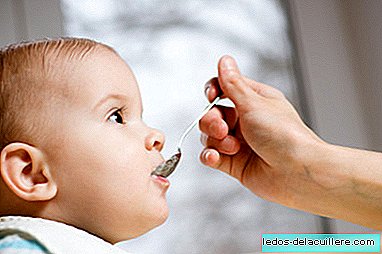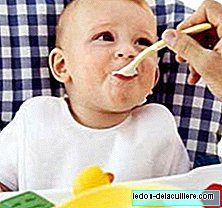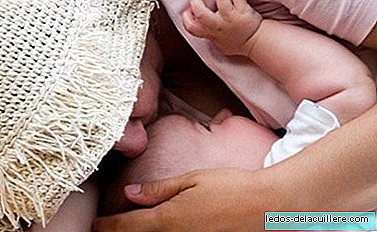
Since they appeared on sale a few years ago, the baby yogurts, made with adapted milk, they made a place in the market of infant food, in the fridges of mothers and fathers and in the consultations of many health professionals who saw with good eyes the possibility of offering yogurts to babies of barely six months.
Soon discordant voices appeared saying not only that they were not necessary, but that they had too much protein and sugar for babies of only six months, and the industry decided to modify the composition resulting in a product still not recommended.
This same year, nutrition experts have talked about them again and the conclusion is clear: adapted milk yogurts are totally unnecessary.
Why give yogurt, if you already drink milk?
The first reason why many health professionals have never been friends with these yogurts is that of offer a dairy that separates milk.
We are all clear that the main food of babies during the first twelve months of life is breast milk, and failing that artificial milk. After 6 months, the complementary feeding begins, which aims to diversify the baby's diet so that he begins to try other foods, to know flavors, textures, smells, and ultimately to make that from the year of life the Milk is another food.
So, with this goal, what is the point of stopping milk to offer yogurt? Why substitute one dairy for another dairy? Someone can say that in the end it does not matter, because you are only doing that: exchange one dairy for another; the problem is that adapted milk yogurts have more protein concentration that adapted milk, and of course breast milk, and also added sugar, and then the equation becomes even less meaningful: What is the reason for removing a baby from breast or artificial milk, to give it artificial milk curdled with sugar and more protein?
And why are there professionals who recommend them?
For the same reason that they say that a 4-month-old baby should be given sugary cereals to gain more weight (as if the important thing was not to offer healthy nutrients but to gain them in any way), or that from a certain age we must take the boy the tit because "he no longer feeds him": lack of update Y lack of critical look before the products that the industry invents to create new needs.
And in these years I have met several professionals who have given me an answer based on that need: "And if I do not recommend a baby yogurt, what yogurt do I recommend?"
Babies do not need to eat yogurts
The answer is very simple: none. Babies are not required to eat yogurt because they do not need to eat yogurt. This is what experts say that last year they published the wonderful food guide for children from 0 to 3 years of the Generalitat de Catalunya, which in 2017 made public a document with frequently asked questions and answers, where we can read one directed to talk about these yogurts
When asked about adapted milk yogurts, they respond in this way:
They are totally unnecessary, since babies under one year old do not need to consume yogurt. In addition, after eight or nine months they can start eating small amounts (a few tablespoons) of plain yogurt (without sugar). It should also be remembered that yogurts adapted with continuation milk designed for babies from six months of age carry added sugars.
So if they are not necessary, they are not recommended and they are much more expensive than normal yogurts, Isn't it time for them to fall into oblivion?
I, as a father and health professional, have it clear. Now we just need at least the rest of professionals to be clear too. There are many mothers and fathers who still today say that their pediatrician or nurse has told them to give them these yogurts, and it is a shame because it affects the credibility and professionalism of both groups.












